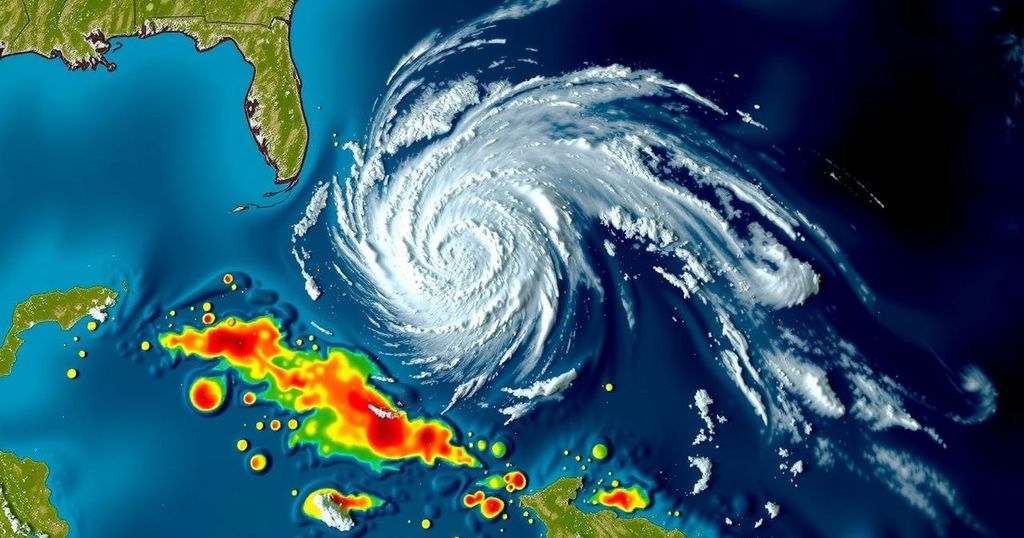Climate Change and Its Role in Intensifying Hurricane Activity

A recent study from Climate Central indicates that climate change is significantly impacting hurricane severity and behavior, with landfalling hurricanes currently averaging 18 mph stronger due to human-induced ocean warming. Historic storms such as Hurricane Beryl and Hurricane Milton exemplify these changes, suggesting a possible shift towards a new norm in hurricane activity and raising concerns about future weather patterns.
In the aftermath of a notably active and destructive hurricane season, the question arises: how much is climate change to blame? Recently published research, as indicated by Climate Central, suggests a strong link between elevated sea surface temperatures and intensified hurricane activity. The year 2019 marked the beginning of extensive studies exploring this relationship. In particular, the season bore witness to historic storms such as Hurricane Beryl—record-breaking in several categories—and Hurricane Milton, which rapidly intensified into a Category 5 storm, defying traditional hurricane development norms.
Hurricane Beryl made history as the earliest hurricane and the first Category 5 storm to form farthest east in the Atlantic, originating as a typical tropical wave. Such waves, the precursors to tropical cyclones, generally flourish from mid-August to early October during the Cabo Verde season. Despite facing considerable atmospheric challenges, Beryl thrived due to the uncharacteristically warm ocean temperatures that surrounded it.
Hurricane Milton, with record-breaking rapid intensification, highlights the concerning trend in hurricane behavior linked to man-made climate changes. According to Climate Central, hurricanes making landfall averaged 18 mph stronger due to human-induced ocean warming, indicating a shift in storm dynamics that could reshape future hurricane seasons. The questions remain: How will changing climatic conditions impact future seasonal weather patterns? Will these patterns herald a new norm of destructive weather events?
The discussion surrounding climate change and its implications for hurricane activity has garnered significant attention in recent years. Notably, research indicates a direct correlation between rising ocean temperatures due to human activities and enhanced hurricane intensity. The phenomenon of warmer ocean surfaces leads to greater storm strength and alterations in traditional hurricane development patterns, prompting meteorologists to reassess the implications of climate change on future weather events. Understanding these dynamics is critical as regions vulnerable to hurricanes face the prospect of increased destruction.
In summary, the relationship between climate change and hurricane intensity is becoming evident, as evidenced by the findings from Climate Central. With hurricanes recording higher average wind speeds and altering their typical patterns of formation and strength, it is crucial for communities to prepare for a potentially changing landscape of destructive weather. Ongoing research will provide further insights into how these trends will evolve in the years to come, raising important questions about the future of seasonal weather phenomena.
Original Source: www.clickorlando.com







